Investing in climate and nature has become more urgent than ever, demanding innovative financial strategies that bridge gaps across public, private, and philanthropic sectors.
Blended finance, a strategy that leverages funds from different sources to mitigate risk and attract private investment, stands out as a particularly promising model. In this approach, philanthropic capital assumes the highest level of risk, giving private sector investors more confidence about potential returns. By combining concessional finance from public or philanthropic sources with commercial investment, blended finance aims to achieve both social and environmental impact while ensuring financial viability.
Although the concept of blended finance is not new, much work remains to increase its adoption and bridge the financing gap needed to fund the low-carbon transition. Recent interest from the philanthropic sector and new grant sources, such as family offices, is encouraging, but current economic and geopolitical conditions have made these transactions more daunting. Information asymmetry adds to the challenge, with public and private actors needing more clarity on philanthropic interests and philanthropies seeking better access to potential deals.
This topic was central to a recent workshop conducted by the World Economic Forum’s GAEA (Giving to Amplify Earth Action) initiative, titled “Investing in Climate and Nature Across the Capital Stack: Public, Private, and Philanthropic Perspectives.” Attended by senior representatives from governments, corporations, philanthropic organisations, and more, the closed-door session aimed to align stakeholder interests in impact investment and blended finance, addressing common challenges and exploring solutions.
Navigating complexities: Structural, market, and mobilisation challenges
Setting up blended finance structures is inherently complex, involving lengthy negotiations and high transaction costs that often hinder alignment among public, private, and philanthropic stakeholders. Simplifying these processes is crucial for fostering smoother collaborations and overcoming fragmentation. Clearer guidelines and streamlined frameworks can expedite negotiations and reduce costs, thereby enhancing the accessibility and effectiveness of blended finance initiatives.
Harmonising reporting requirements presents another significant challenge. Public, private, and philanthropic sectors operate with disparate metrics and standards, complicating impact tracking and decision-making. Establishing common reporting frameworks would improve transparency and accountability across sectors, facilitating more informed decisions.
Investing in emerging markets also poses unique obstacles, including issues with local currency financing and limited collateral. These markets are inherently riskier and do not offer a level playing field for businesses receiving capital. They often lack robust financial infrastructures, complicating investment security. Moreover, meeting accountability and return expectations in global health equity funds adds complexity, requiring strong governance and accountability mechanisms to reassure investors.
In addition to these challenges, mobilising private sector investments for climate action remains an intricate matter. Tensions often arise between private capital needs and the expectations of philanthropic and public entities. Building a credible track record is critical to attract private investment. Enhanced transparency and proven successes are pivotal in encouraging greater private sector engagement in climate initiatives.
Innovative financing models call for innovative solutions
Against this backdrop, innovative blended finance models have emerged as effective solutions, strategically blending public, private, and philanthropic capital to mitigate market risks and foster sustainable growth. De-risking investments in emerging markets, through mechanisms such as concessional capital and guarantees, enhances attractiveness for private investors—thereby catalysing broader participation. Concessional capital, which underpins the capital stack, needs to be more coordinated and concentrated.
Central to these models is the concept of additionality—the principle that philanthropic and public capital should enable projects that would not otherwise attract private investment. By demonstrating additionality, these funds can unlock new opportunities and drive impactful investments in critical sectors for environmental sustainability.
Moreover, establishing robust governance and investment criteria is essential for driving these impactful investments. Transparent criteria that align with stakeholders' bespoke objectives, combined with standardised metrics and harmonised reporting requirements, can notably boost the efficiency and efficacy of blended finance initiatives. This coherence ensures that all parties work towards unified goals, facilitating consistent measurement of success.
Blended finance also plays a key role in mobilising the annual $1.7 trillion required for clean energy investments in emerging markets. Emphasising scale and agility in capital deployment is vital for facilitating the energy transition. Innovative approaches, such as leveraging large concessional investors to underwrite junior equity portions, can streamline transactions and expedite fund deployment. Furthermore, strong partnerships among public, private, and philanthropic entities amplify investments essential for a sustainable energy future.
Harnessing blended finance for sustainable impact
The virtual workshop provided critical insights into blended finance for climate action, highlighting the need for streamlined structures, unified reporting standards, and innovative risk mitigation strategies in emerging markets. Effective governance frameworks and robust partnerships are necessary for achieving enduring impact.
Looking ahead, blended finance holds immense potential to mobilise significant investments in climate and nature conservation by aligning the interests of public, private, and philanthropic sectors. This collaborative approach is crucial for effectively addressing global environmental challenges, making blended finance a potent catalyst for advancing sustainability and equity through innovative solutions and concerted efforts across sectors.
The World Economic Forum is a strategic partner of the Philanthropy Asia Alliance. The Alliance has also joined WEF’s GAEA initiative, which aims to support efforts to close the more than US$100 trillion gap for equitable climate and nature solutions by forging new, diverse public-private-philanthropic partnerships.


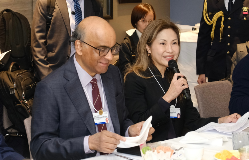





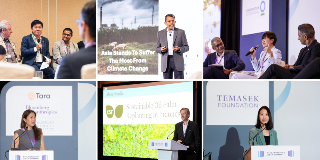
.tmb-.png?Culture=en&sfvrsn=7fea9931_1)
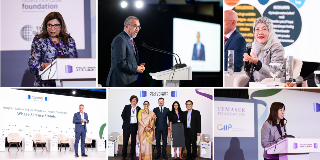
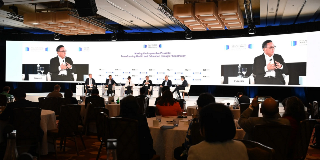
.tmb-.gif?Culture=en&sfvrsn=e13997ec_1)



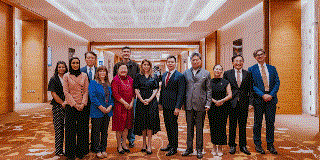


.tmb-.gif?Culture=en&sfvrsn=3f4b1163_1)

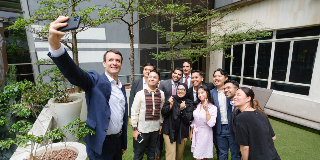


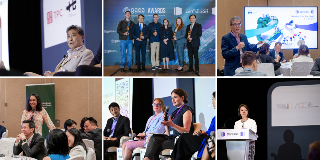

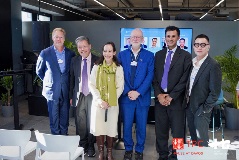
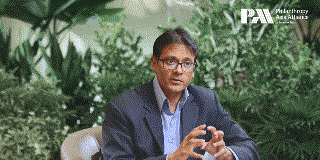
.tmb-.gif?Culture=en&sfvrsn=b5ece239_1)
.tmb-.gif?Culture=en&sfvrsn=6fb3b6df_1)

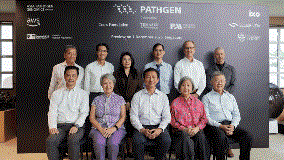
.tmb-.jpg?Culture=en&sfvrsn=fedc60fc_1)
